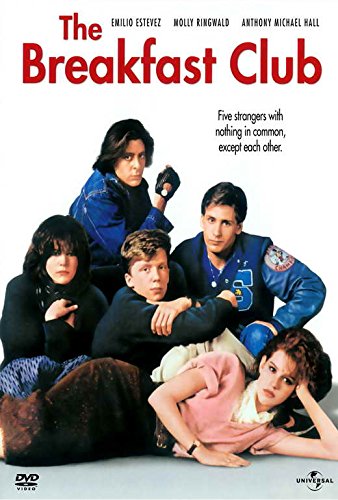Yes: We should expand Advanced Placement classes to sophomores
by Kristian Lundberg
This school’s rationale for limiting most AP classes to juniors and seniors does have good intentions.
Indeed, the common criticism with APs today is that they’re a mile wide and an inch deep. Most require a breadth of prerequisite knowledge and an insane amount of work, both of which are ostensibly more suited for supposedly older and wiser upperclassmen. Even more significantly, the all-consuming terror that is a college application tends to create an “arms race” of AP classes between competitive students.
So I’m proposing a counter-intuitive but hopefully effective solution to the problem: open up AP classes to sophomores.
Despite the bad rap that AP classes have garnered, they do have the significant benefit of allowing students to pursue their interests further in some subjects, compared to curriculum I or even honors classes. The pace and the specificity of these classes, which are designed to mirror the curriculum of a college-level course, not only fosters enthusiasm for learning but also prepares students for a college workload. So it makes sense that we should allow students to take them, but just in amounts that fit the academic needs of each person.
These academic needs are largely individualized, dependent upon a student’s ability to handle the material. In many cases, students have skipped grades in math classes to take AP Calculus before senior year. Likewise, students who have the ability to grapple with advanced coursework might be better suited to an AP class, even if they are underclassmen.
Of the AP classes available at this school, the majority are nominally reserved for seniors. For juniors, the most popular APs are AP Biology and AP U.S. History, which from personal experience are among the most difficult classes in the school. But because so few others are available to rising juniors, many end up taking both AP Bio and U.S. History as a way to compensate for the lack of options. Essentially, the arms race may be delayed for a year, with the vast majority of underclassmen taking no APs and starting out on a level playing field. Once junior year rolls around, the madcap rush to take more APs returns with a vengeance.
Yet plenty of others do participate in these classes for their own enrichment. For them, it should make little difference whether they take an AP in their sophomore or junior year, so long as they know what they’re getting into. So this school’s curriculum should work to open up more APs to sophomores. At the same time, we should de-emphasize the stress put on stockpiling APs. By having the available option to take them earlier, students will feel less pressured to take too many as an upperclassmen and can spread them out over time.
Alex brings up the specter of College Confidential and the dozens of resume-padding APs that inevitably ensue. Fair enough. De-stressing APs would be a step in the right direction. But if the primary goal of these is to provide enthusiastic students with challenging and engaging course material, then we should provide more classes for those who can handle the material, no matter what grade they may be in.
No: We should maintain the status quo
by Alex Feit
Anyone who stumbles upon one of College Confidential’s infamous “What are my chances?” forum posts will most likely notice the sheer amount of AP classes the posters claim to have (there are many “trolls” on the site).
In many cases, the posters list a dozen AP classes that they have taken over the course of their high school careers. Presumably, they had taken some of these classes during freshman or sophomore years. As this school does not generally allow sophomores to take AP classes, it would appear to some worried students that we are behind and need to change.
However, is our lack of AP classes in sophomore year really such a bad thing?
First of all, we should probably block College Confidential from Newton Public Schools (NPS) for inspiring neurotic tendencies in the first place. No student should ever be subjected to such of a cesspool of concentrated anxiety, if our public institutions can help it.
Yet to address the actual point of replacing AP courses for sophomore year, we should remember that the purpose of school is not for padding resumes, but to provide students with a well rounded educational experience. Explicitly offering AP courses during sophomore year would not be useful for these students, as it would be better for them to further develop more basic academic skills than to be abruptly thrown into a class that is arguably harder than an honors course.
By sophomore year, the majority of students that would eventually take an AP have not taken an honors class other than math. Because they have not completely developed important skills, such as writing and time management, they should continue to improve these skills in classes without the overwhelming rigor of APs.
Moreover, AP classes have been trending towards having curricula that are a mile wide and an inch deep in terms of standards, as Kristian mentions above. For the most part, the AP curriculum involves covering a large amount of basic material with little addition of depth. As a result, students would not necessarily receive educational value under if we began replacing honors classes with APs. Instead, it is quite possible that students, under a scramble to take as many courses for college credit, will ironically have a deeper understanding of concepts in an honors or curriculum I class that moves at a slightly slower pace.
The way we structure AP classes right now does actually go both in-depth and broad in terms of what students are expected to learn. However, this is only possible because NPS both develops students’ skills and instills an educational foundation in the honors classes. Without these prerequisites, students would not have the opportunity to learn more in-depth material in the AP classes.
In fact, the success that I feel that I am having in my AP classes is directly as a result of taking honors classes beforehand. I am not sure that I would be able to do as well in my AP classes had I not had the time to adjust to difficult workloads in my sophomore honors classes. I also feel that I am going very far into topics that might have otherwise been skimmed over.
The adage “if it ain’t broke, don’t fix it” applies very well to the situation with sophomore honors classes. Are students getting into good schools? It seems to be the case. If that is true, why reorganize what we know already works? Given the success of the current system, let’s keep the honors curriculum that we have now. Neurotic students need not be worried.
[polldaddy poll=6786103]














































